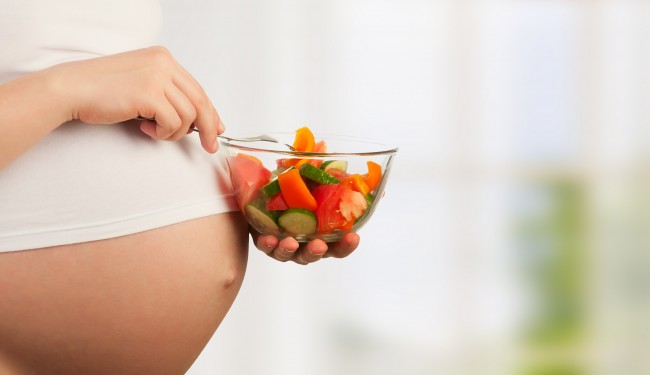Eating a well balanced diet during pregnancy with a variety of food ensures that you receive all the vitamins and minerals necessary…
Folic acid
Also known as folate or vitamin B9, this is essential during the conception phase of pregnancy and during the first trimester. When trying to conceive, a folic acid supplement of 400-600mg should be consumed as it helps prevent neural birth defects such as spina bifida.
It is also essential for blood and protein production and effective enzyme function.
To increase folic acid in the diet, consume foods such as beans and legumes, spinach, broccoli and oranges.
Vitamin D
Although we think we may get enough vitamin D from sun exposure, research is now showing that vitamin D is an essential vitamin for people worldwide.
In pregnancy terms it is essential for the regulation of calcium and phosphate in the body.
The vitamin D consumed during pregnancy is essential as it provides your baby with enough vitamin D for the first few months of life. A supplement containing 5-10 micrograms daily is sufficient to ensure your baby develops strong bones and teeth.
The following foods will also increase vitamin D intake: oily fish, eggs, fortified margarines and dairy products.
Iron
This is essential for red cell production and if not consumed in sufficient amounts can lead to low haemoglobin levels or even anaemia.
Symptoms of low iron include weakness, fatigue, lack of energy, dull and tired looking eyes, cold hands and feet, headaches and slow wound healing.
During the second and third trimesters, supplementation with 27 milligrams of iron is essential.
Also consume iron rich foods such as beef, broccoli, spinach, beans and grains. Although liver contains a high iron concentration, it is best to be avoided during pregnancy as it is also high in vitamin A which can be toxic to your baby if consumed in high amounts.
Vitamin C
This increases the absorption of iron as well as acts as an antioxidant protecting the mother against infections. A dose of 85 milligrams ensures healthy gum, teeth and bone formation.
Citrus fruits, broccoli and tomatoes are great sources of vitamin C
Calcium
This is important for the formation of healthy bones and teeth.
Dairy products and fish with edible bones such as sardines are great sources of calcium. An intake of 1000mg per day is recommended.
Laura May Janse Van Resnburg
Latest posts by Laura May Janse Van Resnburg (see all)
- Hand expressing milk for your baby - July 3, 2014
- Breastfeeding a newborn: The correct positioning and attachment - June 19, 2014
- The importance of the perfect latch when breastfeeding a newborn! - May 27, 2014






 Saving...
Saving...